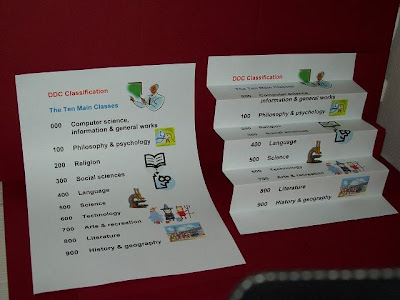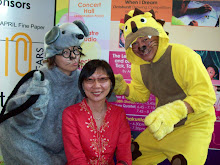
Go to this page, and select "Take the animated tour"
http://www.oclc.org/dewey/resources/tour/default.htm
When you have the animated tour, choose the fourth "Green" Tag on the left "Where does the DDC come from?", and page through the introductory slide, you will find it on the second slide.
With the help of this slide and the subsequent links it offered, you will be able to explore and visit web sites that give you full details of:
*Dewey for windows
*13th Abridged Edition in 1 volume
*21st Edition in 4 volumes
*WebDewey
Selecting the right DDC to start with is not difficult, if you are attentive enough.
If you like to have some one guiding your school librarians, just email
Dexterine Ho at
dexterine@yahoo.com
or
smho@e.ntu.edu.sg
You may like to visit:
List of schools with in-house workshops conducted by Dexterine Ho via INNO HANDS-ON
http://innoworkshop.blogspot.com/2011/06/list-of-schools-with-in-house-workshops.html
Courses from INNO HANDS-ON
http://innoworkshop.blogspot.com/
For course related to DDC, you may browse this blog or email her for other courses available.
If you have any special themes and requirements, Dexterine Ho will be glad to help you to plan and conduct a workshop that meets the special needs!





